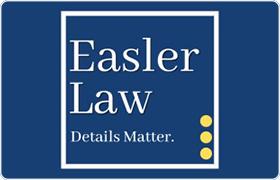Melbourne Estate Planning Lawyer, Florida
Sponsored Law Firm
-
 x
x

Click For More Info:
-
Easler Law, PLLC
508 N. Harbor City Blvd. Melbourne, FL 32935» view mapEstate Law Details Matter.®
At Easler Law we recognize that small details can make a tremendous impact. Attorneys who take the time to listen carefully and understand their clients.
800-676-7130
Includes: Gift Taxation
James Michael Flick
✓ VERIFIEDEstate Planning, International Tax, Commercial Real Estate, Business, Wills
James J. Flick is an attorney, chartered life underwriter, chartered financial consultant, and former certified public accountant, with a law practice... (more)
Albert D. Capouano
Estate Planning, Corporate, Business Organization, Antitrust
Status: In Good Standing
Edward R. Alexander
Estate Planning, Contract, Business Organization, Business
Status: In Good Standing
 Andrew Easler Melbourne, FL
Andrew Easler Melbourne, FL Practice AreasExpertise
Practice AreasExpertise

